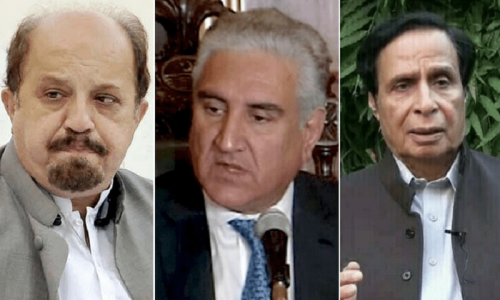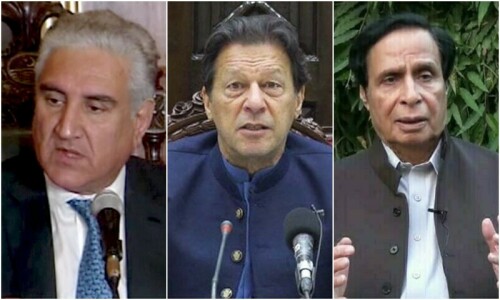The Sindh High Court’s (SHC) election appellate tribunal on Thursday accepted PTI Central Vice President Firdous Shamim Naqvi’s appeal against the rejection of his nomination papers from Karachi’s NA-236 constituency for the Feb 8 polls.
Naqvi was among several PTI leaders whose nomination papers were rejected. On Monday, he had approached the election tribunal against the decisions of returning officers regarding his papers.
The former lawmaker, who is currently confined at his house in connection with a case related to the violent incidents of May 9, had filed the appeal through his lawyer and human rights activist Jibran Nasir.
According to Nasir, his client had filed three identical nomination papers from the same constituency as a precautionary measure after incidents of harassment and abduction of seconders and proposers were reported, especially from Punjab.
However, the lawyer had maintained that all such papers were rejected by the RO on the ground that the appellant’s party had lost the electoral symbol.
Today, Justice Khadim Hussain presided over the proceedings while Advocate Hasaan Sabir, the objector to the papers, appeared before the court along with Nasir.
Sabir is also a candidate of the Muttahida Qaumi Movement-Pakistan (MQM-P) from the same constituency.
Following the hearing, Nasir said the tribunal accepted “all of our three appeals filed on behalf” of Naqvi.
“He is cleared to represent his party and contest elections,” he wrote in a post on social media platform X, formerly Twitter. The counsel added that the tribunal had declared the objections to the papers “illegal”.
The hearing
At the outset of the hearing, Nasir informed the court that the nomination papers of PTI leaders were being rejected on political basis, which was why his client had submitted more than one application.
However, Justice Hussain directed the lawyer to talk only about the law. Nasir contended that the papers were rejected due to the absence of a party symbol.
The judge observed that the PTI would later decide on its candidates and wondered why the papers had been rejected in the “first stage of the checking process”.
Justice Hussain also inquired about the stage at which a party symbol was needed according to the law. “Has the PTI expressed indifference to the candidate?” he asked.
For his part, the objector argued that it was “necessary to state the party affiliation in the affidavit”, claiming that Naqvi had not done so. He asked how the papers could have been accepted if there was “incorrect information given in the affidavit”.
Here, the tribunal asked Sabir how he knew that Naqvi did not belong to the PTI.
The objector then urged the court to dismiss Naqvi’s appeal, contending that he could not obtain the party symbol without the PTI’s certificate. However, the court accepted the PTI leader’s appeal.














































Dear visitor, the comments section is undergoing an overhaul and will return soon.